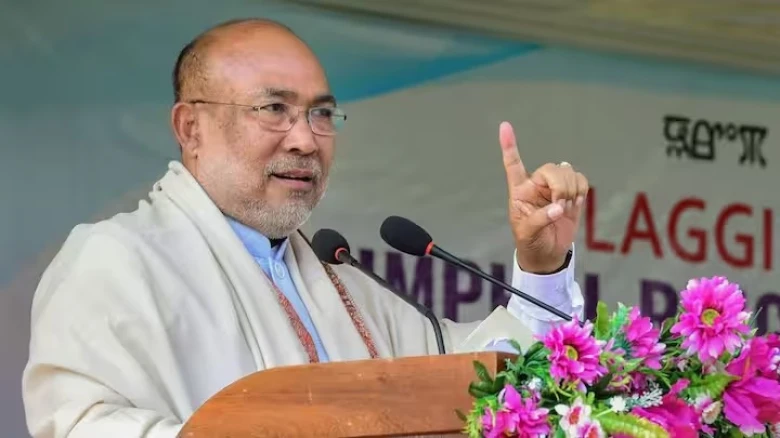The Manipur cabinet approved a proposal in June 2022 to use 1961 as the basis year for assessing the "native status" of state inhabitants to implement the Inner Line Permit (IPP).
Digital Desk: A day after Manipur Chief Minister N Biren Singh said those who entered and settled in the state after 1961 would be identified and deported, experts on Tuesday raised doubts over the viability of the move.
They called it a "welcome step" to identify illegal immigrants, but deporting them would be challenging unless the other nations in question acknowledged them as bonafide citizens.
Ethnic conflict has shaken the northeastern state since May of last year. A portion of immigrants from neighboring Myanmar have been charged by the government with inciting unrest.
The Chief Minister stated during the announcement of "Project Buniyaad" on Monday said, "Those who entered and settled in the state after 1961, irrespective of castes and communities, would be identified and deported."
The Chief Minister's assertion came after the Manipur cabinet, in June 2022, approved a proposal to adopt 1961 as the base year for determining the "native status" of residents of the state for effective implementation of the Inner Line Permit (IPP).
"The foreign nation in question must acknowledge illegal immigrants as legitimate citizens before deporting them. How will the immigrants be deported if the foreign nation does not recognize them as citizens?" A political expert named Pradip Phanjoubam informed news agency PTI.
Ashang Kashar, a prominent Naga and convenor of the Forum for Restoration of Peace, stated that the Manipur government cannot carry out deportations on its own.
"Immigrant identification is crucial. The rights enjoyed by the original occupants should not extend to those who would be considered unlawful immigrants. They shouldn't be able to vote, for example," Kashar told PTI.
Phanjoubam described the choice to use 1961 as the base year for the ILP's implementation as a "welcome step towards solving issues confronting the state".
However, many of those have been residing in the state for a number of decades. They are now citizens by naturalization. There are legal ramifications for deportation that must be taken into account," he stated.
Last year, a Manipur government official said 2,187 people were staying in the state after Myanmar's military ousted the elected government of Aung San Suu Kyi there in February 2021.
The Indian government has taken action to halt the regime of free movement along the border with Myanmar.
Coordinating Committee (COCOMI), a coalition of many Imphal Valley-based organizations, stated that the Chief Minister's remarks demonstrated the government's recognition of the problem of undocumented immigrants settling in the state.
"The fight of today revolves around this. The experience of the NRC in Assam can teach us. Identification of the undocumented immigrants must come first, "COCOMI spokesperson Khuraijam Athouba said PTI.
Interestingly, since ethnic skirmishes broke out in May of last year, Manipur has been experiencing periodic episodes of violence. Since then, more than 180 individuals have died.
The Meiteis represent around 53% of the population of Manipur and are primarily found in the Imphal valley, while the tribal population, which includes the Nagas and Kukis, makes up 40% of the population and is concentrated in the hill regions.
Conflicts have arisen due to various grievances that each party holds against the other. Nonetheless, the attempt to drive out tribal people residing in protected forest regions and the decision to grant Meiteis Scheduled Tribe (ST) status—which has since been rescinded—have been the focal points of the problem.

Leave A Comment